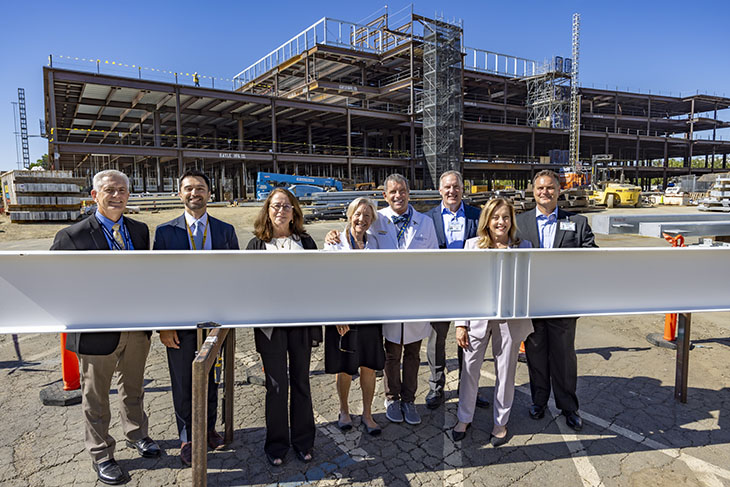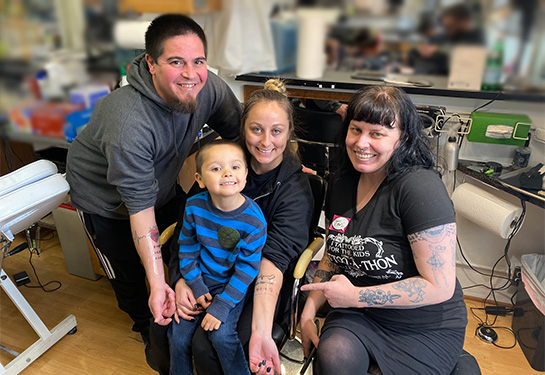How Neurosurgery used data to plan space in 48X
By engaging the Market Analytics & Strategic Intelligence team, the department planned to grow ambulatory spinal surgery

Spine surgery can sound serious to patients. They imagine an invasive procedure that involves months of recovery. But increasingly, today’s spinal surgery involves tiny, endoscopic incisions—often performed by robotic instruments.
The field is advancing rapidly. There’s a ton of opportunity in the spinal surgery space. And not just according to leaders like Neurosurgery Chair Kia Shahlaie, but per the data itself.
Facing the facts
At last year’s Neurosurgery retreat, faculty engaged the Market Analytics & Strategic Intelligence (MASI) team in the Office of Strategy and Growth to research the latest growth opportunities in the neurosurgery market. As one of the first departments to partner with MASI on a standardized approach to service line assessments, they hoped to use the data to inform Neurosurgery’s strategic planning.
The committee asked questions like:
- Where is neurosurgery growing, both nationally and regionally? How does our department compare?
- What types of neurosurgery roles should we hire?
- How should current positions evolve to stay competitive?
- Where is patient demand headed?
What they found confirmed their impressions: there are significant growth opportunities in neurosurgery. Specifically, the data from MASI pointed to endovascular and functional subspecialties as areas with high growth potential.
“That gave us a reassurance that our investments and our focus in that area is well positioned,” said Shahlaie.
This really is a new frontier. Having that data was very helpful to reassure us that this is tomorrow's neurosurgery."—Kia Shahlaie, Neurosurgery Chair
Right on time
The data also highlighted the importance of developing an ambulatory neurosurgery practice. And what better timing, with 48X coming online this summer?
Armed with comprehensive market analysis, Neurosurgery presented the opportunity to leadership. Their request was approved. The team secured space in 48X for an ambulatory spinal surgery program.
“This really is a newer frontier,” said Shahlaie. “Having that data was very helpful to reassure us that this is tomorrow's neurosurgery, and placing emphasis on it today is the right place to be.”

“Health care needs are constantly evolving, as are the innovations enabling us to meet those needs,” said MASI Executive Director Carl Sotherland. “It’s inspiring to witness how data-driven insights are guiding more informed decisions, ultimately improving care and outcomes for the communities that we serve.”
Value-nalysis
Partnering with the MASI team led to a treasure trove of insights. Plus, the team presented a comprehensive analysis. Neurosurgery found their reports relevant and easily digestible, including helpful graphs and visuals.
“The interactions with them have been extremely positive,” said Shahlaie. “They do a great job of living in both worlds: being very, very skilled at data acquisition and analysis but also very good at presenting that data to clinical decision-makers.”
Based on the work done for Neurosurgery, this year MASI has been working on standard service line assessments for other specialties including ENT, Urology, OB/GYN, Orthopedics, Cancer, Transplant and Cardiovascular. This month the team is rolling out a more automated, scalable process for these and other departments to collect the type of strategic data that keeps them competitive.
The Neurosurgery department plans to refresh their data and realign their clinical strategic plan as needed at least once a year.
The way spine surgery is headed, the future is coming fast.






